The Complexity of Educational Ecosystems - Participants: Difference between revisions
From Santa Fe Institute Events Wiki
No edit summary |
mNo edit summary |
||
| Line 35: | Line 35: | ||
[[File: Katy Börner.jpg|thumb|180px|[http://ella.slis.indiana.edu/~katy/ '''Katy Börner''']<br>Indiana University Bloomington]] | [[File: Katy Börner.jpg|thumb|180px|[http://ella.slis.indiana.edu/~katy/ '''Katy Börner''']<br>Indiana University Bloomington]] | ||
'''Katy Börner''' is the Victor H. Yngve Professor of Information Science in the | '''Katy Börner''' is the Victor H. Yngve Distinguished Professor of Engineering and Information Science in the School of Informatics, Computing, and Engineering, Core Faculty of Cognitive Science, and Founding Director of the [http://cns.iu.edu/ Cyberinfrastructure for Network Science Center] at Indiana University, Bloomington, IN, Visiting Professor at the Royal Netherlands Academy of Arts and Sciences (KNAW) in The Netherlands, and Visiting Professor and Mercator Fellow, Department of Computer Science and Applied Cognitive Science, University of Duisburg-Essen, Germany. Börner has been teaching the Information Visualization MOOC (IVMOOC) for six years and her team is actively developing learning analytics data mining and visualization tools for teachers, students, learning scientists, and leadership. She is the author of the ''Atlas of Science'' and ''Atlas of Knowledge'' by MIT Press and a curator of the international [http://scimaps.org/ Places & Spaces: Mapping Science] exhibit. She holds a MS in Electrical Engineering from the University of Technology in Leipzig, 1991 and a Ph.D. in Computer Science from the University of Kaiserslautern, 1997. She is an American Association for the Advancement of Science (AAAS) Fellow and in 2017 she received a Humboldt Research Fellowship. | ||
<div style="clear: both;"></div> | <div style="clear: both;"></div> | ||
<hr /> | <hr /> | ||
Revision as of 19:55, 18 May 2018
SFI ACtioN Topical Meeting
Co-hosted by Boeing
June 4th & 5th, 2018
Santa Fe Institute
Opening Speaker (participating via Skype)
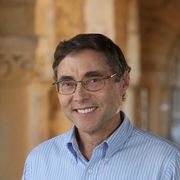
Stanford University
Carl Wieman is DRC Professor in the School Of Engineering and Professor of Physics and in the Graduate School of Education at Stanford University. He has done extensive experimental research in atomic and optical physics. In 2001 he was awarded the Nobel Prize in Physics for producing, along with collaborators Eric Allin Cornell and Wolfgang Ketterle, the first true Bose–Einstein condensate (BEC). His current intellectual focus is now on undergraduate physics and science education. He has pioneered the use of experimental techniques to evaluate the effectiveness of various teaching strategies for physics and other sciences, and recently served as Associate Director for Science in the White House Office of Science and Technology Policy.
Participants

Rensselaer Polytechnic Institute
Atsushi Akera is a historian of technology and an associate professor in the Department of Science and Technology Studies at Rensselaer Polytechnic Institute. In his early career, Akera focused on the history of computing, using the development of computers as a window into the American system of Cold War research and development. His first book, Calculating a Natural World: Computers, Scientists and Engineers during the Rise of U.S. Cold War Research, uses the history of computing to describe broad-based changes in the institutional infrastructure for research in the United States. More recently, Akera has focused on engineering education and engineering education reform.
Indiana University Bloomington
Katy Börner is the Victor H. Yngve Distinguished Professor of Engineering and Information Science in the School of Informatics, Computing, and Engineering, Core Faculty of Cognitive Science, and Founding Director of the Cyberinfrastructure for Network Science Center at Indiana University, Bloomington, IN, Visiting Professor at the Royal Netherlands Academy of Arts and Sciences (KNAW) in The Netherlands, and Visiting Professor and Mercator Fellow, Department of Computer Science and Applied Cognitive Science, University of Duisburg-Essen, Germany. Börner has been teaching the Information Visualization MOOC (IVMOOC) for six years and her team is actively developing learning analytics data mining and visualization tools for teachers, students, learning scientists, and leadership. She is the author of the Atlas of Science and Atlas of Knowledge by MIT Press and a curator of the international Places & Spaces: Mapping Science exhibit. She holds a MS in Electrical Engineering from the University of Technology in Leipzig, 1991 and a Ph.D. in Computer Science from the University of Kaiserslautern, 1997. She is an American Association for the Advancement of Science (AAAS) Fellow and in 2017 she received a Humboldt Research Fellowship.
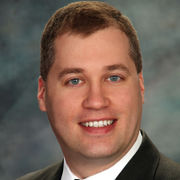
The Boeing Company
Mark Cousino is the director of Learning Design and Technology, a part of Leadership, Learning, and Organizational Capability at The Boeing Company. In this role, his team is responsible for the global design and development of all new learning programs for the enterprise to include leadership, professional development, functional learning, industrial skills development, and knowledge management. His team is also responsible for the enterprise architecture of all learning technologies, digital strategies, and content curation. The Learning Design and Technology organization is also responsible for the enterprise learning strategies, policies, program design, delivery methods, strategic planning for innovation, industry intelligence and benchmarking.

American Society for Engineering Education
Norman Fortenberry is the executive director of the American Society for Engineering Education (ASEE), an international society of individual, institutional, and corporate members founded in 1893. ASEE is committed to furthering education in engineering and engineering technology by promoting global excellence in engineering and engineering technology instruction, research, public service, professional practice, and societal awareness. Previously, Fortenberry served as the founding Director of the Center for the Advancement of Scholarship on Engineering Education (CASEE) at the National Academy of Engineering (NAE). He served in various executive roles at the National Science Foundation (NSF) including as senior advisor to the NSF Assistant Director for Education and Human Resources and as director of the divisions of undergraduate education and human resource development. Fortenberry has also served as executive director of the National Consortium for Graduate Degrees for Minorities in Engineering and Science, Inc. (The GEM Consortium) and as a faculty member in the department of mechanical engineering at the Florida A&M University – Florida State University College of Engineering. Dr. Fortenberry was awarded the S.B., S.M., and Sc.D. degrees (all in mechanical engineering) by the Massachusetts Institute of Technology.
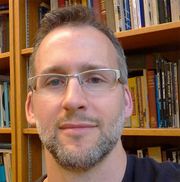
The Minerva Project
Joshua Fost completed a B.A. in neuroscience and philosophy at Bowdoin College, and then earned a Ph.D. in psychology and neuroscience at Princeton and was a postdoctoral fellow at Brandeis University. In 1998 he left academics to work as a consultant and later a Chief Technology Officer, working for companies ranging from internet startups to a $1 billion international commercial real estate company. In 2004, InfoWorld magazine recognized him as one of the top 25 CTOs in the United States. In 2005 he returned to academia, first teaching neuroaesthetics at Hampshire College, then becoming an assistant professor of philosophy at Portland State University in Oregon, where he taught and wrote at the intersection of cognitive science and philosophy. He also developed and taught a variety of courses in the university’s freshman and sophomore general education program, on topics including architecture, comics, the philosophy of science, robotics, and artificial life. He joined Minerva in the spring of 2015 and is currently the Associate Dean of Graduate Studies.

University of Rochester
Dahpon Ho is an Assistant Professor of History at the University of Rochester. His principal interests are maritime history and the ways that flows of trade, people, and goods have shaped life in China and East Asia from the early-modern period to the present. His first book project, Sealords Live in Vain, tells the story of how the maritime province of Fujian in southeast China was transformed by trade and piracy into an outlaw frontier in the 17th century. In future projects, he hopes to examine topics such as population mobility in Chinese history and also the rise of robotics and cybernetics in East Asia.

Imbellus
Rebecca Kantar is the Founder of Imbellus. Imbellus is a venture-backed technology company that is reinventing how we measure human potential. Imbellus has raised $4M from Upfront Ventures, Thrive Capital and Sound Ventures. Rebecca was an Entrepreneur In Residence at GLG from 2014-2016. Previously, Rebecca and her expert-network startup, BrightCo, joined GLG in the summer of 2014. Rebecca has spoken at several TEDx events, StartUp Iceland, Cisco Live, the Dell Social Innovation Summer Institute, the Nexus Global Youth Summit, the United Nations 11th Annual Day of Youth, and for teams at Coca-Cola and Red Bull. Rebecca was a Fellow at the 2013 Nantucket Project and serves on the World Economic Forum's Global Agenda Council on Humanitarian Response. Rebecca dropped out of Harvard College at the age of 19 and now lives in New York City and Los Angeles.
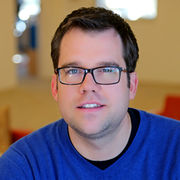
Santa Fe Institute
Chris Kempes generally focuses his work on biological architecture—which may include phenomena ranging from explicit biological morphology to metabolic and genetic network structure—as an intermediate between organism physiology and environmental conditions. Mathematical and physical theories lie at the heart of his methodologies to predict how evolution has shaped architecture and how this, in turn, forms a foundation for reliable predictions of environmental response and interaction. His work spans the scales of genetic information architecture to the morphology of microbial individuals and communities to the regional variation of plant traits and their feedback with climate and available resources. In so doing, he aims to connect these first-order trends to the limitations imposed by environments in order to predict specific evolutionary events and consequences. Several collaborations with experimentalists and theorists have led to models that inform experiments and assimilate empirical data in fields including single-cell experimental biology and forest dynamics.
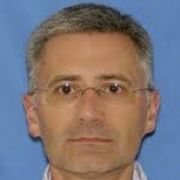
The MITRE Corporation
Matthew Koehler is the Applied Complexity Sciences Area Lead in the Information Discovery and Understanding Department at The MITRE Corporation. Before joining MITRE, Matt was a Presidential Management Fellow at the Center for Army Analysis. Matt holds an AB in Anthropology from Kenyon College, a MPA from Indiana University, and a JD from George Washington University, and a PhD in Computational Social Science from the Krasnow Institute for Advanced Study’s Department of Computational Social Science at George Mason University.
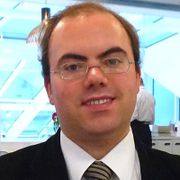
Trinity College Dublin
Charles Larkin is a Lecturer in Economics and Finance at Cardiff Metropolitan University and a Research Associate/Adjunct Lecturer at Trinity Business School. Dr. Larkin is also special adviser on economic policy matters to Sen. Sean D. Barrett, Seanad Éireann, where he has drafted seven pieces of legislation and contributed to dozens more legislative and regulatory items through amendments and high level discussions with ministers and senior government officials. Charles' main areas of policy advice are political economy, public policy and IMF bailouts. His main research interest in the legal aspects and political effects of fiscal management has inspired two further themes in his research: on the history of economic thought and on the connections between educational policy and innovation-led growth.
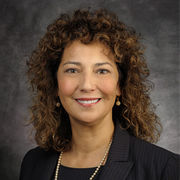
University of Texas at El Paso
Theresa Maldonado is the Dean of the College of Engineering and Professor of Electrical Engineering at The University of Texas at El Paso (UTEP). Starting her engineering career at AT&T Bell Laboratories, Maldonado went on to earn a Ph.D. in electrical engineering from the Georgia Institute of Technology and pursue research and teaching at The University of Texas at Arlington. She earned tenure there and was promoted to professor, taking on administrative roles as an associate dean of engineering and then associate vice president for research. She also has served as associate dean of engineering at Texas A&M University, associate vice chancellor of the Texas A&M University System, and division director at the National Science Foundation (NSF).
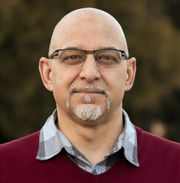
Kern Family Foundation
Doug Melton, a director for the Entrepreneurial Engineering Program at The Kern Family Foundation, is passionate about developing engineering education that fosters an entrepreneurial mindset in students. Melton works closely with faculty and administrators at the universities that comprise the Kern Entrepreneurial Engineering Network (KEEN), which works to develop future generations of entrepreneurially minded engineers by investing in initiatives and programs at select institutions of higher learning. With 17 years as a faculty member within the department of Electrical & Computer Engineering at Kettering University, and having served as the program director for Entrepreneurship Across the University, Melton understands the importance of relating technical topics in an engaging and relevant manner. Before coming to the Foundation in 2012, Melton worked as the director of research and development at Digisonix Incorporated. His team created adaptive, multi-channel system identification, signal processing, and control strategies. His work combined business, technical, and educational aspects, and contributes to his current work in engineering education. Melton earned his Ph. D. in electrical engineering from the University of Wisconsin – Madison, his M.S. in electrical engineering from Ohio State University, and his B.S.E.E. from Wichita State University.
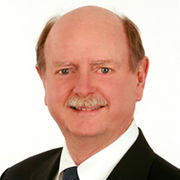
Olin College of Engineering
Richard Miller was appointed President and first employee of Olin College of Engineering in 1999. Previously, he served as Dean of Engineering at the University of Iowa, Associate Dean of Engineering at USC in Los Angeles, and assistant professor of engineering at UCSB in Santa Barbara. With a background in applied mechanics and current interests in innovation in higher education, Miller is the author of more than 100 reviewed journal articles and other technical publications. He received the 2017 Brock International Prize in Education for his many contributions to the reinvention of engineering education in the 21st century. Together with two Olin colleagues, he received the 2013 Bernard M. Gordon Prize from the U.S. National Academy of Engineering (NAE) for Innovation in Engineering and Technology Education. Recently elected to the American Academy of Arts and Sciences, he is a member of both the NAE and the National Academy of Inventors.

New York Hall of Science
Priya Mohabir is Vice President of Youth Development at the New York Hall of Science (NYSCI). She has been with NYSCI for the last 14 years, starting as an Explainer. From 2005 to 2009, Priya was the NYSCI lead for Urban Advantage, a standards-based partnership program designed to improve students’ understanding of scientific inquiry through collaborations between urban public school systems and science cultural institutions. In 2009, Priya returned to the Explainer Department bringing her experience in developing and implementing professional development workshops to both the Explainers and Explainer Leadership Team. Over the last few years, Priya has worked to develop the Science Career Ladder Institute for STEM Learning, comprised of career development workshops and opportunities, extended residency experiences in education and research, and mentoring opportunities. As the new director of the Alan J. Friedman Center for the Development of Young Scientists, Priya will lead the Science Career Ladder as well as the Science Career Ladder Institute. Working with the Explainer leadership team she will continue to develop new and interesting opportunities for the Explainers and residents, including additional programs to cultivate the interests and careers of young scientists.
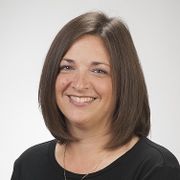
Purdue University
Tamara Moore’s research, which currently includes three National Science Foundation-supported projects, is centered on the integration of STEM concepts in K-12 and higher education mathematics, science, and engineering classrooms in order to help students make connections among the STEM disciplines and achieve deep understanding. Her research agenda focuses on defining STEM integration and investigating its power for student learning. She is creating and testing innovative, interdisciplinary curricular approaches that engage students in developing models of real world problems and their solutions. Her research also involves working with educators to shift their expectations and instructional practice to facilitate effective STEM integration.
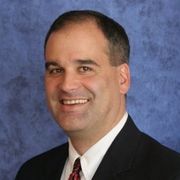
The Boeing Company
Marcus Nance is a demonstrated leader, with 30 years experience in complex systems development in both defense and commercial business sectors. His accomplishments include development of domestic and international systems in launch, space, aviation, communications and networks. He also developed the first ever Enterprise technology portfolio and investment plan in systems engineering, software engineering, modeling, simulation, test and evaluation. His current assignment has him placed in a strategic Enterprise role driving step-function improvements using targeted problem solving and change management. His work has been recognized by our company Chief Technology Officer, the Federal Aviation Administration, as well as US and international customers. Outside work, he serves on the board of a non-profit, charitable organization in strategic planning and governance.
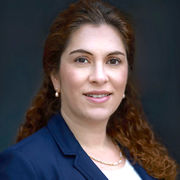
Wake Forest University
Olga Pierrakos currently serves as the founding chair of the Department of Engineering at Wake Forest University in Winston-Salem, NC. Previously, she also served as founding faculty at James Madison University in Harrisonburg, VA. Prior to coming to Wake Forest, she served as Program Director at the National Science Foundation in the Division of Undergraduate Education. Pierrakos conducts research in engineering education, cardiovascular fluid mechanics, and sustainable energy technologies.

The Boeing Company
Michael Richey's research portfolio is aligned to his corporate roles and responsibilities as a Boeing Associate Technical Fellow through: a) supporting the company’s business strategies by ensuring technical excellence across the enterprise in our people, technologies, processes, tools, and products, b) expanding the company technical skills and performance by improving the acquisition, retention, knowledge, and utilization of our technical workforce for business success and c) participating in representing the company’s technology interests to the outside world customers, the general public, academia, and government. His current research projects include engineering education, socio-technical systems, university online STEM programs, and educational data analytics. This multi-disciplinary research brings together expertise in the learning sciences, complexity science and social networking together with data in ways that can create an integrated understanding of system structure and behavior.
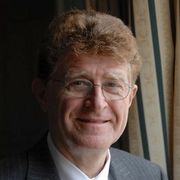
National Science Foundation
Mihail C. Roco is the founding chair of the US National Science and Technology Council subcommittee on Nanoscale Science, Engineering and Technology (NSET), and is Senior Advisor for Science and Engineering, including Nanotechnology, at the National Science Foundation. He is also the editor in chief of the Journal of Nanoparticle Research. He was declared engineer of the year in 1999 and 2004 by NSF and the U.S. National Society of Professional Engineers.
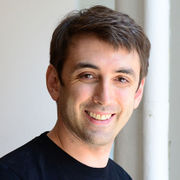
General Assembly
Jake Schwartz is Co-Founder and CEO of General Assembly, where he is responsible for guiding the organization’s global growth and expansion. Under his leadership, General Assembly has scaled to 14 cities in less than four years, and has helped more than 70,000 students create opportunities through educational programming in technology, business and design. General Assembly was recently voted Fast Company’s #1 Most Innovative Company in Education and #28 Most Innovative Company in the world. Prior to founding General Assembly, Jake worked for Associated Partners, a multi-stage private equity firm focused on telecommunications, media, and technology co-funded by Liberty Media and Goldman Sachs.

University Of Colorado Boulder
Ben Shapiro is an Assistant Professor in the ATLAS Institute, the Department of Computer Science and, by courtesy, in the School of Education and the Department of Information Science at the University of Colorado Boulder. His research group, the Laboratory for Playful Computation, investigates how to enable kids from diverse backgrounds to learn computer science through collaborative, creative expression and through the design of networked technologies to solve problems in their homes and communities. He received his PhD in Learning Sciences from Northwestern University and was a postdoctoral fellow at the University of Wisconsin—Madison.

University of California, Irvine
Constance Steinkuehler is a professor in the Department of Informatics at the University of California–Irvine. As 21st century computer games blossom with possibilities, think of Steinkuehler as one of the people watering the digital garden. “I’m interested in games that improve cognitive well-being, especially among young people,” she says. Fascinated with the social dimensions of online play, Steinkuehler is exploring its convergence with cognitive processes to enhance mindfulness and mental well-being. “We’re developing games that promote learning, health, the self-regulation of attention, and the ability to recognize someone else’s feelings and to respond productively to them,” she explains. Previously, she was an Associate Professor in Digital Media at the University of Wisconsin–Madison and co-directed the Games+Learning+Society (GLS) center at the Wisconsin Institute of Discovery.
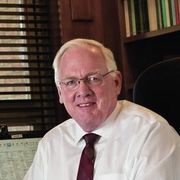
Albuquerque Academy
Andy Watson is head of school at Albuquerque Academy, where he arrived after serving in teaching and administrative roles for a decade each at Fountain Valley School in Colorado and Potomac School in Northern Virginia. He earned his B.S from the Ohio State University and his M.S. from Yale, after which he started his teaching career at a public middle school in Dayton, Ohio. Along with his work on campus, he serves on the boards of the National Association of Independent Schools, the Global Online Academy, the Educational Records Bureau, and the advisory board of the National Merit Scholarship Corporation, and he previously served at a tri-chair of the Harvard Principals’ Center National Advisory Board.
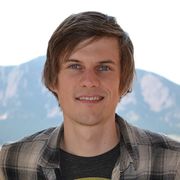
University Of Colorado Boulder
Samuel Way focuses his research on applications of complex network analysis and machine learning to problems in the emerging field of computational social science, as well as biomedical research. His most recent work takes a systems-level approach to studying the scientific workforce, exploring factors that determine the composition and productivity of tenure-track faculty, including gender and the prestige of affiliated universities. In addition, Sam's research includes predicting health state variables from human microbiome samples and, separately, improving surgical procedures for treating heart rhythm disorders.

Ronin Institute
Jon F. Wilkins is a theoretical evolutionary biologist and poet, and founder and president of the Ronin Institute. His current interests span several different topics, including genomic imprinting, coalescent theory, statistical inference, and the origins of robustness and epistasis. Genomic imprinting is the phenomenon where the pattern of expression of an allele depends on its parental origin. Imprinted gene expression is thought to be the result of an intragenomic evolutionary conflict between matrilineal and patrilineal expression strategies. Jon is particularly interested in understanding the origin of such conflicts in the context of cognition and behavior, and in understanding the consequences of intragenomic conflict for phenotypic evolution at the level of the individual organism. Jon also works on coalescent theory, particularly the population genetics of geographically structured populations. He is also working to develop more general and powerful statistical methods for using genetic data to make inferences about demographic history and population structure. Jon’s third major area of research is on the evolution of robustness, and how patterns of robustness and epistasis are shaped by natural selection.

